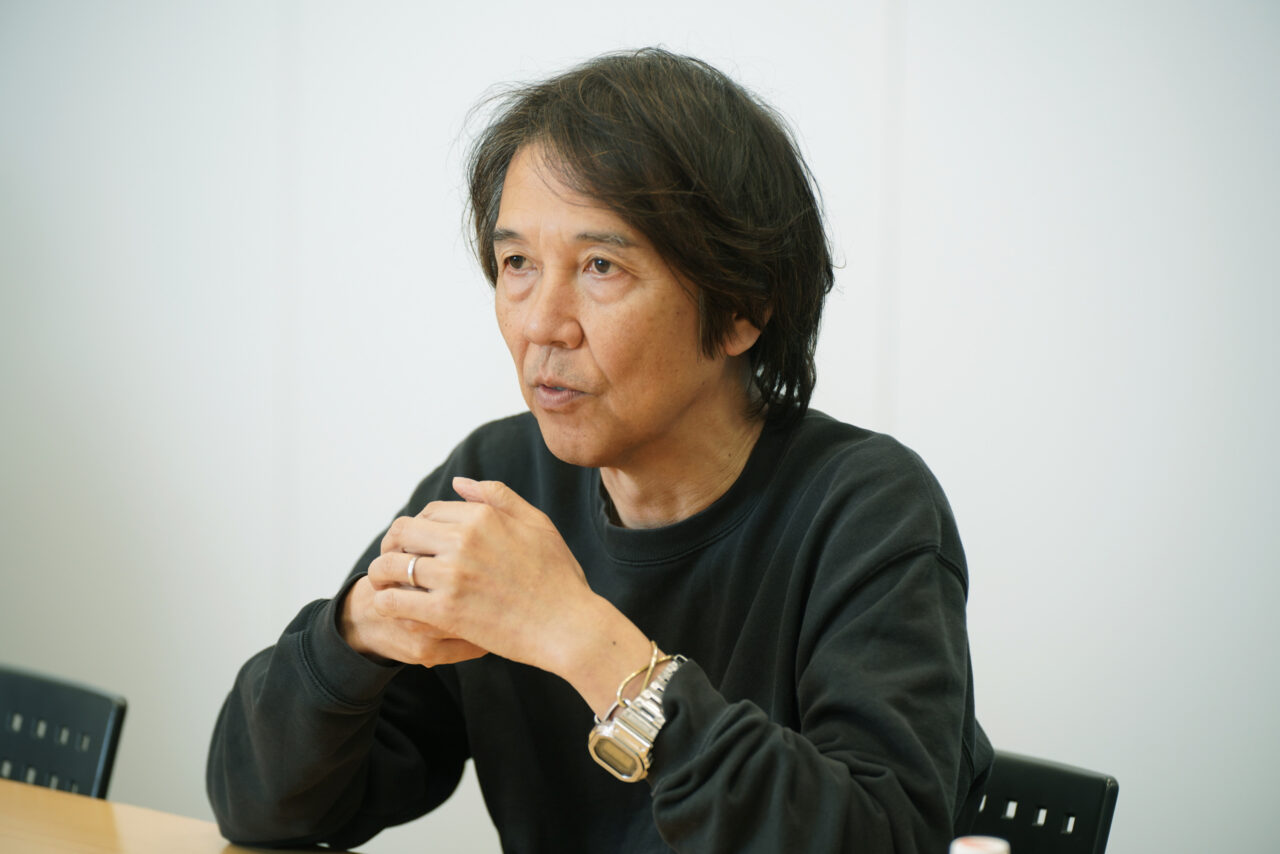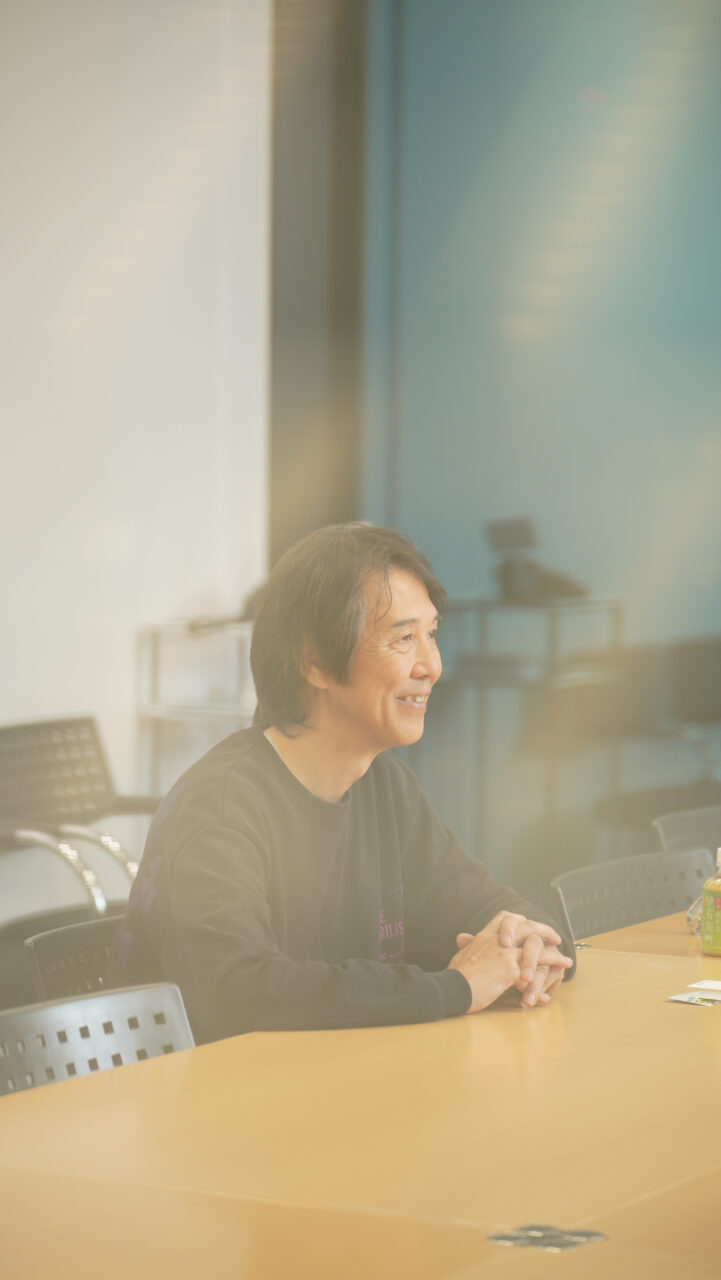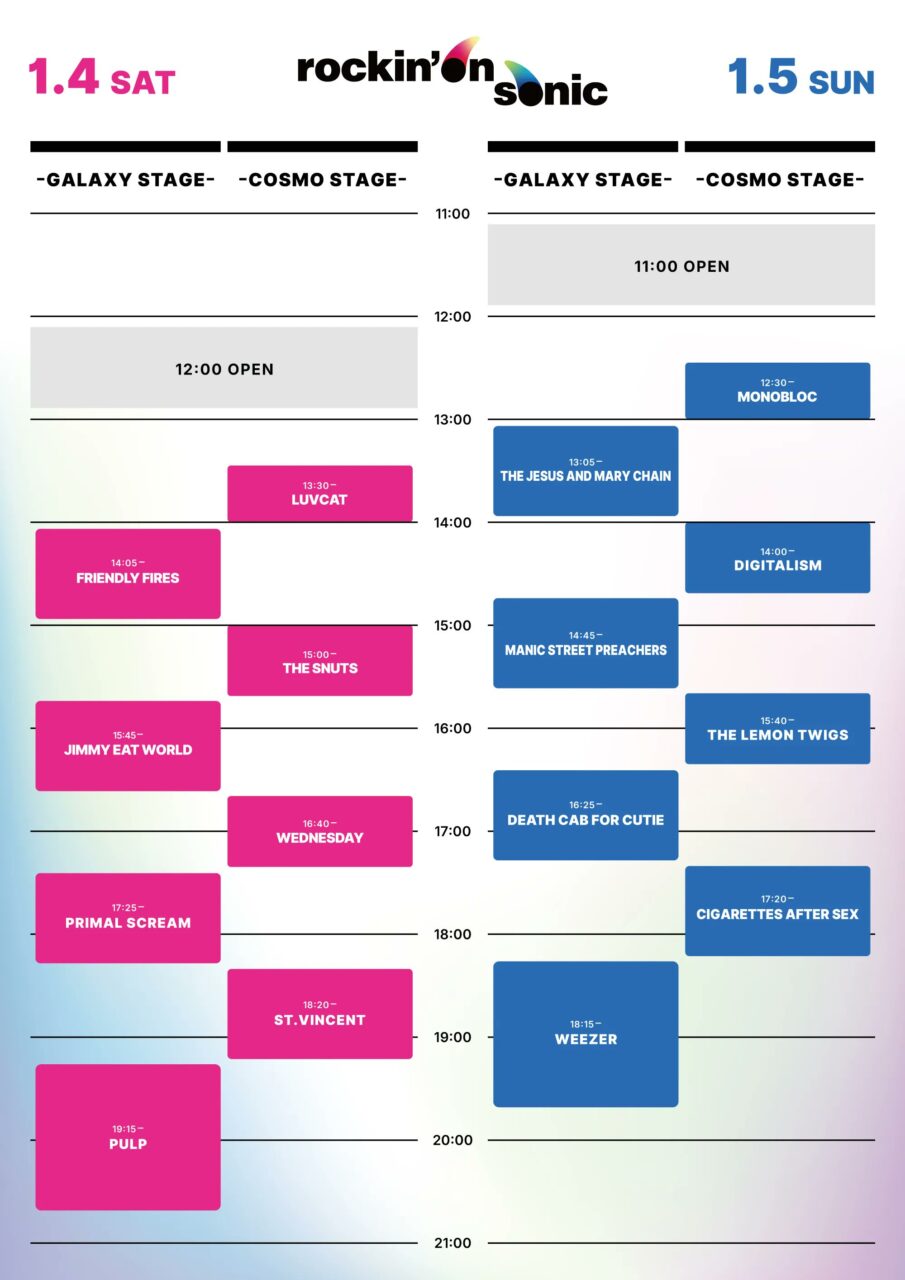INDEX
A Rapid Fusion of Generational Music Influences
The festival seems to encompass all the different entry points to Western music across generations. As someone in my 50s, I feel a sense of nostalgia from the lineup, but it’s also exciting to see artists from “today.” Meanwhile, people in their 40s, who grew up enjoying Japanese rock bands like ASIAN KUNG-FU GENERATION and [Alexandros] before being introduced to Western music, might have a different sense of connection.
Yamazaki: In addition, there are bands like Jimmy Eat World and Death Cab for Cutie. I believe these bands played a significant role in influencing Japanese rock bands like Straightener and ELLEGARDEN within a different context.
(Editor) I’m 27, and for me, my gateway to Western music was through small communities and bands, such as learning about Weezer through Helsinki Lambda Club or discovering The Lemon Twigs from a band I encountered at a live house in Shimokitazawa. These smaller connections were my introduction to Western music.
Yamazaki: That’s a wonderful entry point as well. I’d be happy if people who started their journey into Western music from similar small encounters come to this festival. The reason we chose to hold the festival at this particular time, as I mentioned earlier, is because I feel that the way music is consumed has been changing drastically over the past few years. Since the emergence of Gen Z, it seems like the music preferences that were once divided by generation have started to blend together.
What exactly do you mean by that?
Yamazaki:In the past, older generations had few opportunities to see younger artists, and conversely, younger generations didn’t often get to experience the legends. But now, thanks to streaming services, people of all generations can easily listen to music. This has created a significant change.
Before streaming, people had to buy or borrow albums, which often meant staying within the music of their own generation. But now, older generations are more interested in younger artists, and younger generations have far more opportunities to experience the legends. With the removal of these generational barriers and the rapid blending of music, I felt it was crucial to hold this festival at this moment.

Certainly, the spread of the internet and social media, especially with the advent of streaming services, has really expanded the music world.
Yamazaki: And I think the pandemic further accelerated this change. Before, the music scene was built around live performances. I mostly went to live shows of artists from my generation, but going to live houses or concert venues was time-consuming, and attending frequently was difficult.
However, with the pandemic, live shows became almost impossible, and listening to recorded music was all we could do. With platforms like YouTube offering music videos and live footage, there was suddenly greater access to music from other generations, and it seems like the excitement just exploded.
Also, I feel like the younger generation is much more accepting of reformed bands these days. In the past, when bands like the Sex Pistols or the Pixies reformed, they were often met with cold reactions, like “They’re just in it for the money.” It feels like we rarely hear that kind of criticism anymore.
Yamazaki: You’re right. In the past, when we thought of rock bands, there was always a narrative: a band forms, they have their struggles, some bands win, others lose, and eventually, they break up. That was the “story of a rock band.” But then, the idea of “reunion” emerged as a new form, and it became accepted as part of the story. For younger generations, I think reunions are seen as just another chapter in the band’s story, almost naturally.
I see. That’s really interesting.
Yamazaki: Our generation used to have a certain resistance or reluctance towards reunions. But now, as the generational divide has lessened, it’s become a big change that younger generations have an unconditional respect for the legends.

I feel that the journalistic perspective and context of rockin’on are reflected in this lineup as well.
Yamazaki: This was something I was very conscious of. I believe that rock continues to evolve, but it is also something that is passed down through the generations. In other words, it’s about honoring tradition while always becoming something new. I wanted to shape this “vertical flow” as a festival.
For example, in our magazine, we might feature an interview with The Rolling Stones alongside one with The Lemon Twigs, who are in their 20s. By having artists from different eras and generations discussed side by side, you get a more diverse and interesting perspective. I applied the same idea when putting together this festival’s lineup.




























